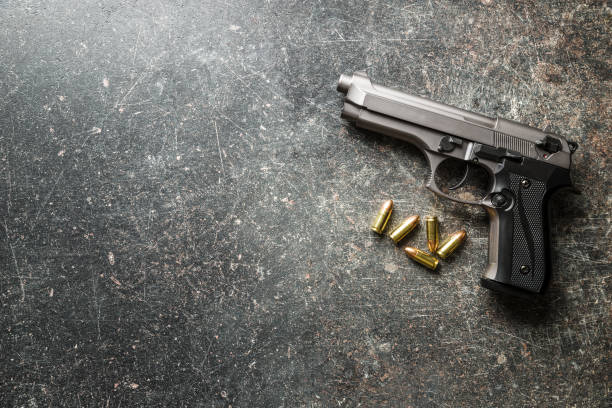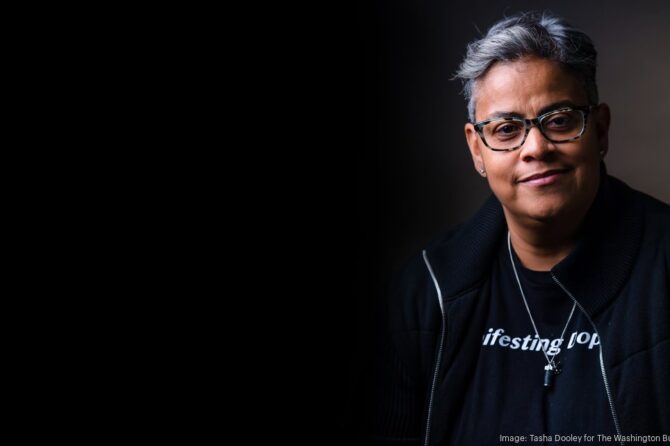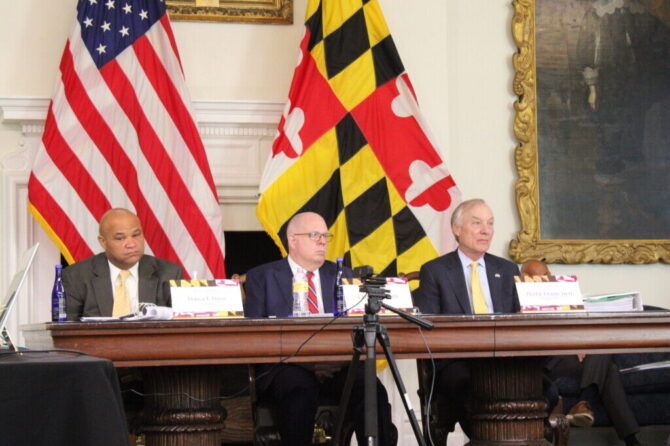Maryland’s ban on semiautomatic assault-style weapons violates the constitutional right to bear arms because the blanket prohibition is not narrowly tailored to achieve the compelling governmental interest of public safety, gun rights advocates stated last week in their final bid to have the Supreme Court hear their challenge to the state law.
In papers filed with the justices, the advocates said a lower court has erroneously upheld the ban as constitutional by applying a lower standard of review and holding the prohibition is substantially related to the important safety goal.
This “intermediate” standard is inappropriate in determining whether a law violates a constitutional right, the advocates added in saying the Second Amendment should be on the same constitutional footing as the First Amendment right to free speech.
“The courts would not apply intermediate scrutiny to a ban as burdensome as Maryland’s in the context of any other enumerated constitutional right and the Second Amendment cannot be singled out for special – and specially unfavorable – treatment,” wrote David H. Thompson, the advocates’ lead attorney at the Supreme Court. “A contrary rule would allow the government to eliminate the Second Amendment by degrees – first banning one type of arm, then another, and then another.”
The advocates called the banned guns “a class of arms typically possessed by law-abiding citizens for lawful purposes,” such as self-defense.
The advocates submitted their brief as the high court considers whether to hear their appeal of a 4th U.S. Circuit Court of Appeals decision upholding Maryland’s 2013 ban. The justices are scheduled to vote May 19 on the advocates’ petition for review.
The case is docketed at the Supreme Court as Dominic Bianchi et al. v. Brian E. Frosh et al., No. 21-902.
The advocates’ most recent filing came in response to Maryland Attorney General Brian E. Frosh’s request that the high court decline to hear their appeal.
“This court’s invalidation of a complete ban of in-home possession of handguns – which ‘the American people have considered … to be the quintessential self-defense weapon’ – does not prevent legislatures from reaching a different conclusion about a limited class of military-style semiautomatic rifles associated with mass shootings,” Frosh wrote, quoting from the Supreme Court’s 2008 decision in District of Columbia v. Heller that law-abiding citizens have constitutional right to possess handguns in their home for self-defense.
“(E)specially in view of the unquestionably compelling interest in public safety that firearms regulation addresses, intermediate scrutiny should apply to a limited ban on a specific type of weapon that has not been shown to have commonly been used for home self-defense purposes and where the ban leaves ample effective alternatives for self-defense, including many semiautomatic weapons and handguns,” Frosh added.
In response, the advocates said Frosh’s nod to what he called the state’s compelling interest belies his argument that intermediate scrutiny should apply.
“While the supposed super-strength of its interest may help it pass strict scrutiny, it is hard to see why it should be double-counted as also entitling the government to a less stringent form of scrutiny,” wrote Thompson, of Cooper & Kirk PLLC in Washington.
The advocates mounting the Supreme Court appeal include the Sacramento, California-based Firearms Policy Coalition, three Maryland gun owners; the Field Traders gun store in Anne Arundel County; and two Bellevue, Washington-based groups, the Second Amendment Foundation and the Citizens Committee for the Right to Keep and Bear Arms.
The advocates’ pending petition marks their second high court challenge to Maryland’s 2013 ban. In November 2017, the Supreme Court declined without comment to review the 4th Circuit’s decision in that case, Kolbe v. Hogan.
The advocates renewed their challenge in the U.S. District Court in Baltimore in 2020. They correctly predicted in court papers that their argument would be rejected both at the trial stage and on appeal at the 4th Circuit in light of the Kolbe decision, setting the stage for their renewed and pending Supreme Court challenge.
The Supreme Court that will consider the advocates’ request is markedly different than the composition of the panel that denied the appeal five years ago. Justice Anthony M. Kennedy retired and Justice Ruth Bader Ginsburg died, leading to then-President Donald Trump’s appointments of Justices Brett M. Kavanaugh in October 2018 and Amy Coney Barrett in October 2020.
In addition, President Joe Biden appointed Ketanji Brown Jackson this year to succeed Justice Stephen G. Breyer upon his announced retirement when the Supreme Court issues its final decision of this term, expected in late June.
For an appeal to be granted review, at least four of the high court’s nine justices must vote in favor of review.
Frosh, then a state senator, was chief sponsor of the 2013 Firearm Safety Act and shepherded the bill – which bans 45 assault-style weapons, including the AR-15 — through the Senate as chair of the chamber’s Judicial Proceedings Committee.
In urging the high court to deny the advocates’ appeal, Frosh cited many deadly events involving the assault-style weapons, including the Dec. 14, 2012, slaying of 20 first graders and six employees at Sandy Hook Elementary School in Newtown, Connecticut; the June 12, 2016, killing of 49 people at the Pulse nightclub in Orlando, Florida; the Oct. 1, 2017, slaying of 58 people at a Las Vegas, Nevada, music festival; and the Feb. 14, 2018, killing of 17 students and staff at Marjory Stoneman Douglas High School in Parkland, Florida.
Assistant Maryland Attorney General Julia D. Bernhardt, Frosh’s litigation chief, is the state’s counsel of record before the high court in the case.










